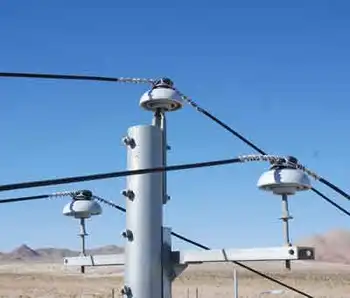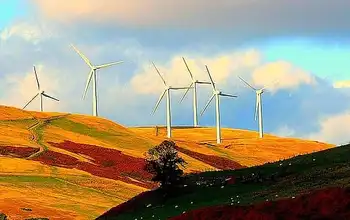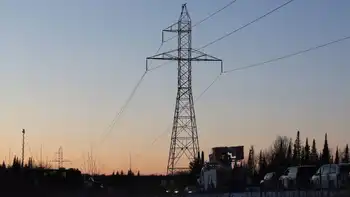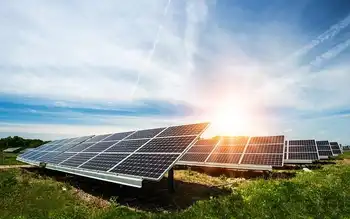Biden Imposes Higher Tariffs on Chinese Electric Cars and Solar Cells

Substation Relay Protection Training
Our customized live online or in‑person group training can be delivered to your staff at your location.

- Live Online
- 12 hours Instructor-led
- Group Training Available
U.S. Tariffs on Chinese EVs and Solar Cells target trade imbalances, subsidies, and intellectual property risks, bolstering domestic manufacturing, supply chains, and national security across clean energy, automotive technology, and renewable markets.
Key Points
Policy measures raising duties on Chinese EVs and solar cells to protect U.S. industry, IP, and national security.
✅ Raises duties to counter subsidies and IP risks
✅ Supports domestic EV and solar manufacturing jobs
✅ May reshape supply chains, prices, and trade flows
In a significant move aimed at bolstering domestic industries and addressing trade imbalances, the Biden administration has announced higher tariffs on Chinese-made electric cars and solar cells. This decision marks a strategic shift in U.S. trade policy, with market observers noting EV tariffs alongside industrial and financial implications across sectors today.
Tariffs on Electric Cars
The imposition of tariffs on Chinese electric cars comes amidst growing competition in the global electric vehicle (EV) market. U.S. automakers and policymakers have raised concerns about unfair trade practices, subsidies, and market access barriers faced by American EV manufacturers in China amid escalating trade tensions with key partners. The tariffs aim to level the playing field and protect U.S. interests in the burgeoning electric vehicle sector.
Impact on Solar Cells
Similarly, higher tariffs on Chinese solar cells address concerns regarding intellectual property theft, subsidies, and market distortions in the solar energy industry, where tariff threats have influenced investment signals across North American markets.
The U.S. solar sector, a key player in renewable energy development, has called for measures to safeguard fair competition and promote domestic manufacturing of solar technologies.
Economic and Political Implications
The tariff hikes underscore broader economic tensions between the United States and China, spanning trade, technology, and geopolitical issues. While aimed at protecting American industries, these tariffs could lead to retaliatory measures from China and impact global supply chains, particularly in renewable energy and automotive sectors, as North American electricity exports at risk add to uncertainty across markets.
Industry and Market Responses
Industry stakeholders have responded with mixed reactions to the tariff announcements. U.S. automakers and solar manufacturers supportive of the tariffs argue they will help level the playing field and encourage domestic production. However, critics warn of potential energy price spikes for consumers, supply chain disruptions, and unintended consequences for global clean energy goals.
Strategic Considerations
The Biden administration's tariff policy reflects a broader strategy to promote economic resilience, innovation, and national security in critical industries, even as cross-border electricity exports become flashpoints in trade policy debates today.
Efforts to strengthen domestic supply chains, invest in renewable energy infrastructure, and foster international partnerships remain central to U.S. economic competitiveness and climate objectives.
Future Outlook
Looking ahead, navigating U.S.-China trade relations will continue to be a complex challenge for policymakers. Balancing economic interests, diplomatic engagements, and environmental priorities, alongside regional public support for tariffs, will shape future trade policy decisions affecting electric vehicles, renewable energy, and technology sectors globally.
Conclusion
The Biden administration's decision to impose higher tariffs on Chinese electric cars and solar cells represents a strategic response to economic and geopolitical dynamics reshaping global markets. While aimed at protecting American industries and promoting fair trade practices, the tariffs signal a commitment to fostering competitiveness, innovation, and sustainability in critical sectors of the economy. As these measures unfold, stakeholders will monitor their impact on industry dynamics, supply chain resilience, and international trade relations in the evolving landscape of global commerce.












